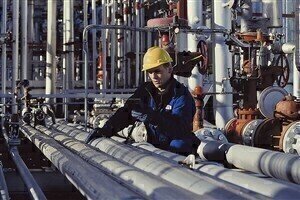Fuel for Thought
Upstream, Midstream and Downstream – Understanding the Three Petroleum Markets
Oct 18 2014
While petroleum is an integral part of modern day infrastructure, its origins can be traced back hundreds of millions of years. The valuable liquid is formed when oil and natural gas merge together to create petroleum, a name which originates from the Latin word meaning ‘rock oil.’
Petroleum falls into the fossil fuel category due to the fact that it is a product of naturally decaying prehistoric plant and animal matter. The substance is made up of hundreds of hydrocarbons molecules which can be harvested in two forms – liquid (referred to as crude oil) and vapour (referred to as natural gas). The harvesting process itself is divided into three major divisions - upstream, midstream and downstream. Read on for an overview of each of the three sectors and how they contribute to the final petroleum product.
Upstream
This category is commonly referred to as the exploration and production sector. This involves companies actively searching for underground and underwater sources of crude oil and natural gas. This is done using sophisticated drilling equipment which is used to tap into the sources and draw oil and natural gas to the surface. The upstream petroleum industry is associated with the most lucrative merger, acquisition and divestiture deals. In fact in 2012, upstream merger and acquisition deals alone accounted for over $254 billion. The industry is hugely profitable and attracts investors and funders from across the globe.
In order to detect the presence of an oil reservoir, geologists employ a number of techniques – you can read about this further in this article: How to Find Oil and Gas.
Midstream
As expected, the midstream sector is the second of the three petroleum market stages. The category refers to the transportation of crude or refined petroleum products, usually via pipeline, oil tanker, barge, truck or rail. The final destination is refineries which will then commence the downstream process. The midstream sector also includes the storage of these products as well as any wholesale marketing efforts. Due to its median positioning, the midstream sector can also comprise of upstream and downstream elements. This could include purifying plants which raw natural gas passes through before entering the refinery.
For more information about the transportation of oil by rail and the quality checks that must be performed at loading and unloading points, read this article: Proliferation of Crude by Rail and its Impacts.
Downstream
The downstream sector is the final stage of the process and refers to the refining, processing and purifying of crude oil and natural gas. The sector also encompasses any efforts that are made to market and distribute crude oil and natural gas related products. This includes products such as petrol, gasoline, diesel oil, jet fuel, lubricants, heating oil, asphalt, waxes and a plethora of different petrochemicals – some of which may surprise you.
This stage is an important part of the petroleum market and actively turns harvested matter into cold hard cash. The downstream market also includes hydrodesulphurisation, a process which sees sulphur containing compounds found in crude oil converted into gaseous hydrogen sulphide. Natural gas processing plants are also used to remove hydrogen sulphide and sulphur-containing mercaptans from raw natural gas. The hydrogen sulphide by-product is then converted into elemental sulphur.
While the three stages are very different, each plays a critical role in the overall petroleum harvesting process. Together, they create an incredibly valuable fossil fuel which is used to power the world as we know it.
Digital Edition
PIN 25.3 June/July
June 2024
Analytical Instrumentation - Recent Advances In Various Bench Scale Accelerated Oxidative Testing Methods For Fuels - Petrochemical Industry: Anton Paar Solutions Streamline Processes, Reduce H...
View all digital editions
Events
Jul 30 2024 Jakarta, Indonesia
Jul 30 2024 Jakarta, Indonesia
China Energy Summit & Exhibition
Jul 31 2024 Beijing, China
Jul 31 2024 Chengdu, China
Aug 05 2024 Moon Township, PA, USA


















